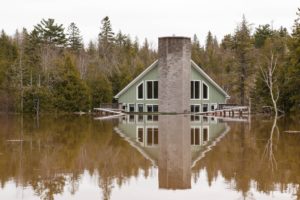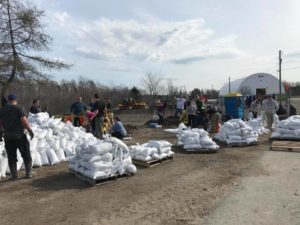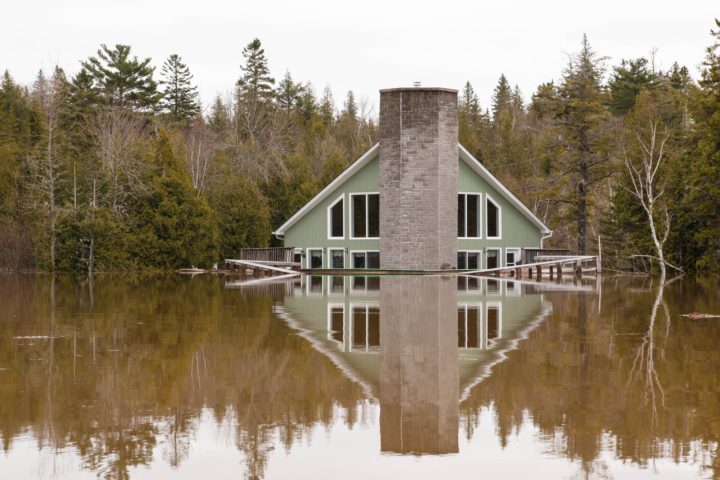
Water levels have reached record highs in southern New Brunswick as flooding along the St. John River continues to intensify into its second week.
In the Greater Saint John area, the river has swelled to approximately 5.7 metres, well above the region’s flood stage of 4.2 m and rivaling levels of the historic 1973 flood.
More than 100 roads have been closed since the water began rising, including a 200 kilometer stretch of the Trans-Canada Highway between Moncton and Fredericton.
At least 1,053 people have been forced to evacuate their homes, abandoning cherished belongings and memories to be saturated by unforgiving waters. The provincial Emergency Measures Organization is advising residents in low-lying areas of southern New Brunswick to evacuate their homes to prevent further health and safety risks.
Officials are also warning that flood waters are likely “highly contaminated” due to damaged sewage systems, fuel storage tanks and debris from land. Homeowners who use a private well for drinking water are also being warned of possible contamination.
On Saturday, Premier Brian Gallant told reporters he hasn’t ruled out declaring a state of emergency or mustering the army to help respond to the unprecedented flooding.

Yet, as floodwaters continue to cause destruction — engulfing roads, homes and businesses — there is undeniable strength, support and resilience among New Brunswickers.
Hundreds of people have gathered in hardest-hit areas to help, filling thousands of sand bags, bringing meals, and doing what they can to assist neighbours, friends and community members.
The City of Fredericton is providing shuttle services for residents affected by road closures. The Canadian Coast Guard and the Department of Fisheries and Oceans are providing emergency evacuation to those who can’t safely leave their homes.
The provincial government launched the Disaster Financial Assistance program, which helps cover uninsurable losses that could threaten residents’ health and safety, and provides complimentary water testing, electrical re-connections and electrical damage assessment, and health and safety inspections.
People who must evacuate their homes are encouraged to register with Canadian Red Cross to make arrangements and receive assistance with relocation. NB Power urges evacuees to contact them for emergency disconnections to prevent electrical fires in homes.
Numbers you should know:
Damage reports: 1-888-298-8555
NB Power: 1-800-863-6272
Emergency Measures Organization (EMO): 1-800-561-4034
Disaster Financial Assistance: http://www2.gnb.ca/content/
Sandbags are available at locations across the province for people who need them, call the EMO at 1-800- 561-4034 for a full list of locations.
Regional emergency spill numbers:
Bathurst Region (506) 547-2092
Miramichi Region (506) 778-6032
Moncton Region (506) 856-2374
Saint John Region (506) 658-2558
Fredericton Region (506) 444-5149
Grand Falls Region (506) 473-7744

